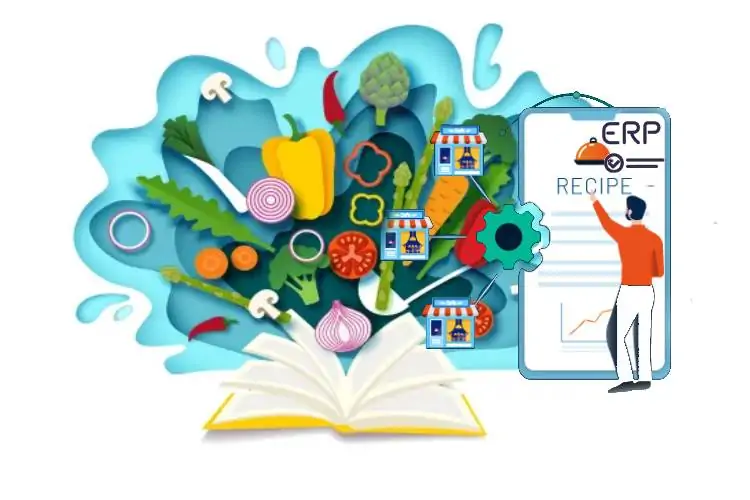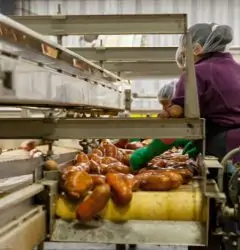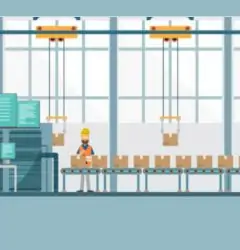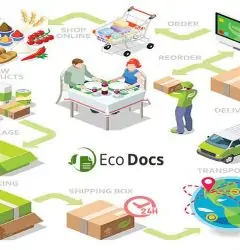31 Dec

In the food industry, the key to success is recipe management. That’s why it’s important to ensure consistency and accuracy among all the batches in different locations, including taste, texture, smell, and color.
Whether it’s a small scale coffee chain or a large-scale food manufacturer, recipe management and controls requires constant coordination between the factory floor and the warehouse. However, the global pandemic has certainly disrupted the entire food chain ecosystem. Fortunately, Food ERP plays a significant role in addressing online consumer demand by ensuring recipe accuracy and food safety.
Read along to learn about how Food ERP is revolutionizing recipe management.
Why is Food ERP Necessary?
Those businesses who understood the importance of digitalization could convert the global challenge posed by the pandemic into a once-in-a-lifetime opportunity.
The primary goal of using food ERP is to accelerate supply chain operations and implement digital strategies to pivot the existing business models.
Not only that, but the available real-time data allows the manufacturing enterprises to interpret and analyze the information to make timely decisions.
Examples of Recipe Management Using Food ERP
From the availability of raw ingredients in the inventory to storing the food recipes for years, below are various examples of how businesses implement Food ERP.
Recipe Storage
All the recipes and corresponding versions should be stored online on a unified platform for easy access. Therefore, the companies can ensure recipe version management, improvement, and duplication.
Food tracking and Initial Costing
After storing the recipes, the next step is the integration of the ingredients with purchasing tools to analyze the initial per-unit and bulk cost.
Measurement Conversion
Unit measurement and conversion play an integral role in food recipe management. That’s why the measuring unit conversion should be available at every level in Food ERP, from purchasing to the final product.
Proportion Control
The food industry involves complicated calculations that require the management of recipe scaling in different batches.
Shelf-Life Maintenance
Food manufacturers can significantly reduce food waste by monitoring the shelf life and expiry of different raw ingredients.
Formulation
The Food ERP offers the desired tools to manage the formulation of the beginner, intermediate, and finished products and recipes.
Yield Control
The food manufacturers need to compare the actual and standard yield and Food ERP offers a convenient way to do it.
Quality Control
The food ERP helps the warehouse ensure food safety and quality control checks of the raw products, recipes, and final products.
Inventory Management
The food industry can benefit from the ERP software to ensure the availability of all the raw products in the inventory. Moreover, the recipe management solution determines the alternatives available in the ERP and calculates the cost of buying new ingredients.
Food Labelling
The warehouse staff can properly label the ingredients name, quantities, nutritional information, and other allergen information for the customers.
Compliance
The quality control team can track the ingredients of all the batches to ensure compliance with the local regulations.
Monitoring
The warehouse staff can carefully manage the ingredients and other religious requirements to ensure adherence to the standard procedures.
Tracking
The food industries can track the supply chain in case of an issue or a recall to offer exceptional customer services.
Archiving
From ingredients to batch management, the food manufacturers can store the recipes for years on Cloud through the food ERP software.
Security
The primary goal of using Food ERP is to protect the recipe and ingredients proprietary information from competitors.
Advantages of Digital Infrastructure
Food manufacturers can modify and improve the existing warehouse design and management by implementing food ERP. This way, the food industries can reap the following benefits:
Increased Productivity
The warehouse serves as the primary node in the supply chain that contains the inventory. The food ERP helps the food industries process, collect, pack, and distribute products to different sale points. Furthermore, the manufacturers can effectively utilize the warehouse capacity to ensure a lean and safe stock.
Inventory Management
The lean manufacturing practices mean the industries receive the goods in time to minimize costs. Furthermore, it minimizes the total time the ingredients spend in the inventory, leading to effective utilization.
However, the recent global pandemic severely affected the food logistics causing the food operations to halt completely. Furthermore, it led to a food shortage in the market.
Therefore, the food industries need ERP solutions to manage the inventory and the respective shelf-life of the raw ingredients. Hence, food ERP predicts the future demand and supply cycle allowing the food businesses to maintain the inventory and maximize the profits.
Warehouse Contracts
One thing we have all learned from COVID-19 is that life is unpredictable. That’s why the businesses should focus on shorter warehouse contract terms to co-share, lease, and rent the warehouse space.
Therefore, many businesses no longer sign a longer warehouse contract for three to five hours. Instead, the proposition is to shorten the warehouse space contract term to one to two hours, allowing both parties to profit equally.
Acceleration in E-Commerce Growth
E-commerce growth has witnessed growth during the pandemic. That’s why the warehouses and other distribution centers require a unified online platform to keep up with the ever-increasing demand for online shopping.
Centralized to Distributed Systems
The inventories and warehouses of food businesses are present in different locations. The food ERP maintains the records of the items available in all the warehouses allowing the staff to access the item availability from the distributed systems.
Conclusion
Food industries can benefit from using ERP solutions to integrate the recipe information on an online cloud. Moreover, food manufacturers should be flexible towards digital transformation and E-commerce to stay on top of the game!



